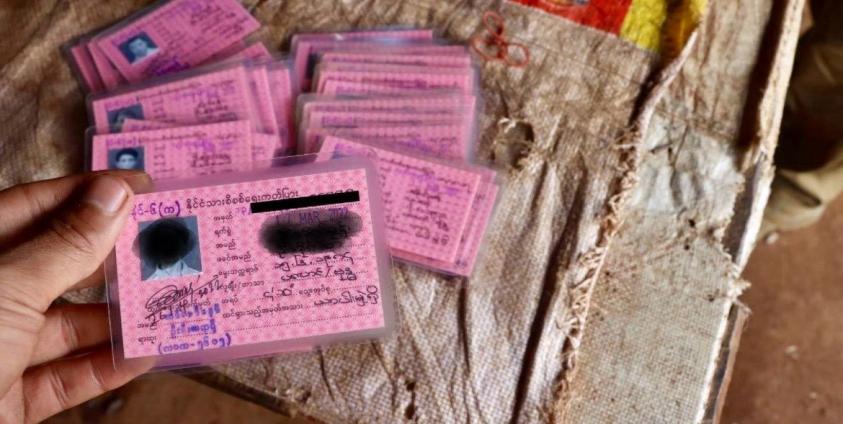The junta has told public transport companies to not sell tickets to any ethnic Wa, Palaung (Ta’ang) or Kokan people resident in Shan State.
To buy travel tickets passengers need to show their National Registration Card (NRC). If their NRC number starts with 13/XXXX it means the holder is resident in Shan State. The NRCs also state the holder’s ethnicity, so it is easy enough for travel companies to see if someone is eligible to buy a travel ticket.
A transport official who supervises bus routes to Yangon, Mandalay, KengTung, and Tachileik said on 2 August: “People from the Wa, Kokang, and Palaung ethnic groups holding NRC numbers start with 13/XXXX are not allowed to travel. It was an order given by the junta over two weeks ago. If the Military Council gives its permission they might be able to travel again, but we have no idea when that might happen.
The ban was confirmed by a person working at a bus station.
People traveling from Shan State to Yangon previously had no issues, but now, before they they travel, they need to check with the relevant junta departments to see what travel regulations are in force.
A ticket salesperson working for a bus company operating a service between Yangon and Myawaddy Town said that some bus companies were also refusing to sell bus tickets to anyone whose NRC number started with 13/XXXX, irrespective of their ethnicity.
On 21 August they said: “[People with] NRCs starting with 13/XXXX are restricted and cannot travel, but other registration card numbers can still travel.”
The junta has apparently imposed these travel in response to the launch of the 1027 Offensive by the Three Brotherhood Alliance in northern Shan State. It is made up of the Myanmar National Democratic Alliance Army (MNDAA) and the Ta'ang National Liberation Army (TNLA) based in northern Shan State; and the Arakan Army (AA) from Rakhine State. The MNDAA is a Kokang ethnic armed organisation (EAO) and the TNLA is a Palaung (Ta’ang) EAO.
The MNDAA and TNLA have captured several townships in northern Shan State, including the junta’s Northeastern Regional Military Command in Lashio, during the first and second phases of Operation 1027. They are now setting up new administrations and governing the towns and townships they have seized from the junta.
A representative of the United Wa State Army (UWSA) a Wa EAO, said in an unverified statement that the junta travel restrictions were ethnic discrimination.
The United Wa State Army (UWSA), a Wa EAO, has not directly engaged with junta troops during Operation 1027. But, after the first phase of Operation 1027 the UWSA took administrative control of the towns of Ho Pang and Pan Lon that had been captured from the junta by the Three Brotherhood Alliance.
During the second and current phase of Operation 1027 the UWSA has also, until now, not fought with the junta, but it has sent troops to towns captured from the junta by the Three Brotherhood Alliance such as Tanbyan and Lashio.








